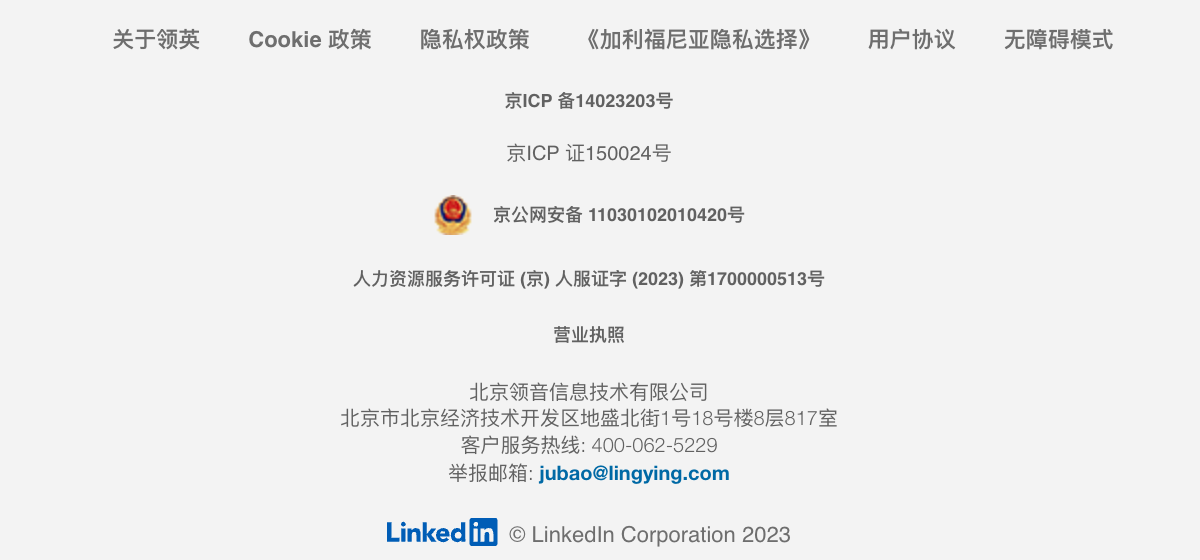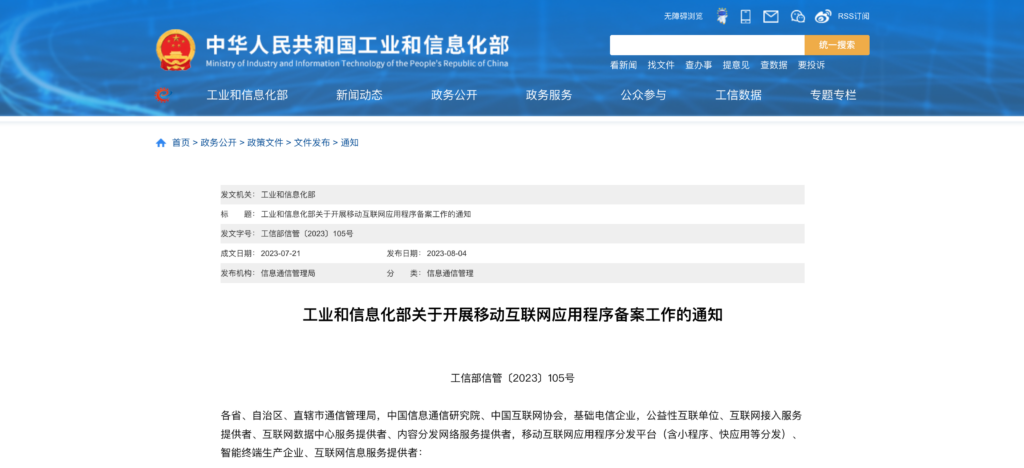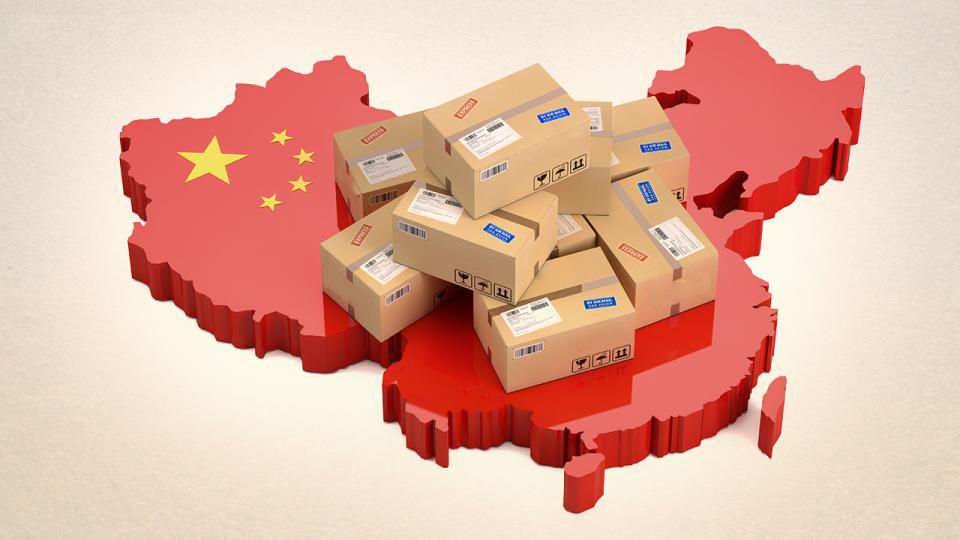As China continues to lead global eCommerce, entering this thriving market can be a game-changer for businesses. However, before any website or app can legally operate in mainland China, companies must secure an ICP (Internet Content Provider) registration. This regulatory requirement, enforced by the Ministry of Industry and Information Technology (MIIT), is crucial to ensure compliance and secure your foothold in the market.
For consultation on ICP and EDI application strategies, or assistance with application, TMO provides expert China Digital Compliance Services.
*This article has been revised in January 2025 to ensure its completeness and accuracy regarding the latest policies for ICP regulation in China.
What is ICP Registration?
ICP is a mandatory permit for all websites, apps, mini-programs, and quick apps operating in China. Since its introduction in September 2000, ICP registration has been a cornerstone of China’s digital compliance structure, becoming increasingly relevant with recent regulatory updates. Displaying the ICP number in your website’s homepage is not just a legal requirement; it’s a testament to your brand’s credibility and trustworthiness in the eyes of Chinese consumers.

Types of ICP Registrations: Which Fits Your Business?
Issued by China’s Ministry of Industry and Information Technology according to the Measures for the Administration of Internet Information Services (2000), two types of ICP permits allow websites to operate in China:
- Non-commercial ICP Filings (ICP备案 or ICP bei’an) are required for informational websites and websites selling their own physical products (e.g. a trading or retail company that owns the product licenses). These can be obtained by a Wholly Foreign-Owned Enterprise (WFOE) in China.
- Commercial ICP Licenses (ICP证 or ICP zheng) are required for websites that sell services–including digital products or physical products from multiple merchants. These can only be obtained by (1) 100% Chinese Companies or (2) Joint Ventures where foreign investment does not exceed 50%.
Considering a strategic move into the China market? Our Cross-border eCommerce Solutions are designed to help you assess and implement your China market entry strategy with confidence.
How to Register for ICP: A Step-by-Step Guide
Whether you need a filing or a license, the process follows a similar pathway:
Not sure where to start? Get expert assistance with our China Digital Compliance Services to ensure full legal conformity.
- Eligibility, Application Strategy, and Pre-approval: Depending on your specific industry (eg. publishing, medical, or cultural websites) and the intended province of operation, variations in the application process, documentation, and review timelines may apply. Make sure to verify your specific case.
- Choose a Hosting Provider in China: Your website must be hosted on a local server. We recommend working with ICP-licensed providers such as Alibaba Cloud (Aliyun).
- Prepare Required Documentation: This includes your company’s business license, representative ID, and domain certificates. Industry-specific businesses may require additional documentation.
- Submit Application via Hosting Provider: After gathering your documentation, your hosting provider will submit it to MIIT on your behalf. The approval process typically takes 20-60 days for filings depending on the region and the complexity of your submission, while Commercial Licenses can take longer.
- Post-Approval Compliance: Once your ICP number is issued, display it prominently in the footer of your website and file it with the Public Security Bureau (PSB) within 30 days.
Keep in mind that you must complete ICP Filing in the same province where your business license was issued, so make sure to consult the MIIT’s ICP filing regulations for different regions before preparing your application.
ICP Management to Stay On Top of Your Compliance
After securing your ICP, ongoing management is essential. The MIIT ICP Management System allows businesses to check their registration status, update details, and monitor compliance. Remember, changes in your company structure, website content, or hosting provider must be reflected in your ICP registration.
You may also be interested: A comprehensive overview blog on Data Protection Laws in China: Overview (2025)An overview of the current data protection laws in China, including recent updates, and implications for cross-border eCommerce businesses.Data Protection Laws in China.
2023 Update in ICP Regulations: What You Need to Know
In September 2023, MIIT introduced updates that now require all apps, mini-programs, and quick apps to also comply with ICP filings to promote better internet development and help crack down on telecommunications and internet fraud.
In the case of existing apps already listed in App Stores within the country, the “Notice on the Registration of Mobile Internet Applications” marked the end of March 2024 as the deadline for completing the ICP registration procedures.

After this deadline, the competent telecommunication authority entered the stage of supervision and inspection of the filing situation from April to June, disposing of apps that have not fulfilled the procedures in accordance with the Law. WeChat has also started carrying out mini-program clearance for overdue filings.
During the so-called Normalization working stage from July 2024 onwards, Communications authorities will regularly conduct assessments on the accuracy of app registration information and act accordingly.
FAQs: Common Questions About ICP Registration
1. Can I avoid getting an ICP Registration?
No. If your website is hosted in mainland China, an ICP is mandatory. Offshore hosting in regions like Hong Kong or the U.S. may bypass the need for an ICP, but performance issues due to the Great Firewall are common, often resulting in slow load times and poor user experience. If targeting the Chinese market is your priority, obtaining ICP Registration is well worth the effort.
2. What are the risks of non-compliance?
Operating without an ICP can result in your website being blocked, hefty fines, or even criminal charges, and the inability to monetize your online presence in China.
3. Can I use the same ICP number for multiple websites?
No, each website must have its own ICP number, even if they are owned by the same entity.
4. What happens if my application is rejected?
If your application is rejected, MIIT will notify you to correct errors, and you can also inquire through the website of the ICP/IP Address/Domain Name Information Registration Management System. Rejected applications without rectification can result in your website being shut down.
Common Mistakes and Misunderstandings
- Thinking ICP is only for large enterprises: Every website, regardless of size, must have an ICP license to operate in China.
- Failing to update ICP registration: Changes in your website, business structure, or hosting provider require updates to your ICP details.
- Believing purchasing local hosting automatically grants ICP: Buying a hosting plan in China does not complete the ICP process. You still need to file separately.
China ICP Mobile App Registration with TMO Group’s Agency Services
Ensuring compliance with China’s ICP regulations is a critical step in establishing and growing your digital presence in this massive market. By securing the proper registration, you not only avoid legal risks but also build trust with your audience.
Our China Digital Compliance Services can help you through every step of the process, from consultation to application.
For overseas operators, the filing process may be difficult as the materials required for ICP filing and the registration system are in Chinese, and the ICP filing of overseas entities requires the use of space servers in mainland China. TMO has the experience of helping overseas enterprises to comply with ICP filing in China, if you need help with the app or mini-program ICP license filing, or have any questions, please feel free to contact us!
*Source: Ministry of Industry and Information Technology of China, Internet Society of China












